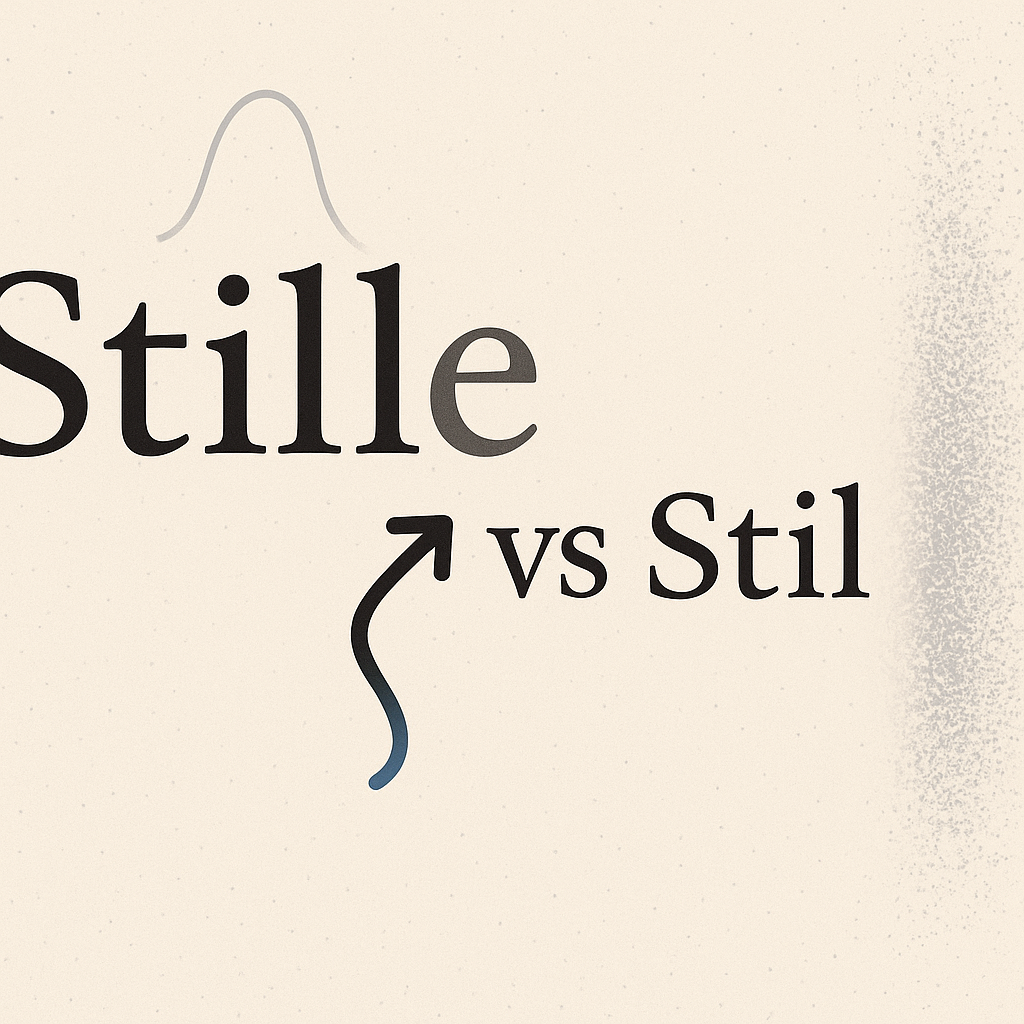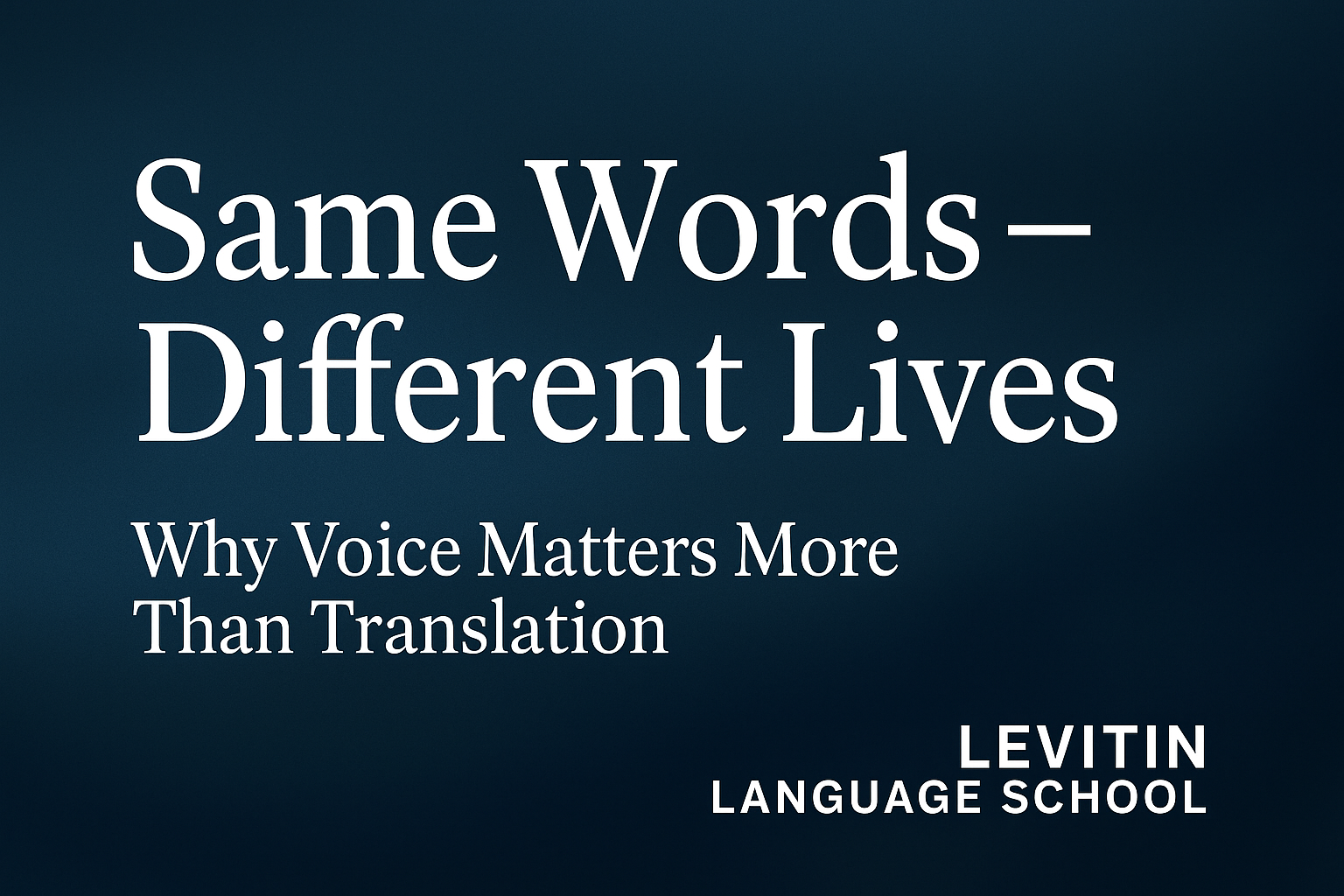Why Not Everything You Love Is Liebe
🔗 Выберите язык:
👉 Начните свое путешествие с нами
“I Love You” = “I Love Chocolate”? Really?
In English, we love everything.
We love our partners.
We love pizza.
We love rainy days, and dogs, and movies.
We even “love” Mondays… sometimes.
One word — love — is used for all of it.
But is it really the same feeling?
In this article, we’ll explore how different languages — German, Spanish, Ukrainian, Russian — help us separate real love from emotional habits.
And why this matters for anyone learning to communicate deeply, not just fluently.
German: Where Words Respect Meaning
In German, you don’t “love” chocolate.
You например, it. You enjoy it. You prefer it. But you don’t lieben it — unless you’re joking or being ironic.
| Verb | Example | Значение |
|---|---|---|
| lieben | Я люблю тебя | Deep, personal, emotional love — romantic or family-based |
| mögen | Ich mag Schokolade | I like chocolate — neutral and honest |
| хорошо жить | Ich habe dich gern | Soft affection; caring deeply, often among friends or family |
| gern essen / gern machen | Ich esse das gern | I enjoy eating this — pleasure without emotional weight |
This linguistic boundary teaches emotional precision.
It shows that Germans don’t overuse deep words. And perhaps we shouldn’t either.
Spanish: Passion in Layers
Spanish offers more texture than English — and more caution than you might expect.
| Фраза | Translation | Usage |
|---|---|---|
| Я тебя люблю | Я люблю тебя | Deep, romantic, serious; not for casual use |
| Те кьеро | I care for you / I love you | Softer, affectionate, used with family and partners |
| Me gustas | Ты мне нравишься | Flirtatious, initial attraction |
| Me encanta el chocolate | I love chocolate | Literally: “It enchants me” — stronger than “me gusta”, but still safe for chocolate |
You’ll rarely hear a Spanish speaker say “te amo” to a dessert.
They save that phrase for something real. And permanent.
Ukrainian and Russian: One Verb, Many Worlds
In both Ukrainian and Russian, the verb “to love” exists — but the rules around it are subtle.
| Язык | Фраза | Nuance |
|---|---|---|
| Украинский | Я тебе люблю / Я тебе кохаю | Кохати = romantic; любити = family, friendship, general fondness |
| Русский | Я тебя люблю | Can mean romantic love, but also used more broadly |
| Украинский | Мені подобається шоколад | I like chocolate — no emotional confusion |
| Русский | Мне нравится шоколад | Same — clear separation between person and thing |
In both languages, the emotional weight of love can be heavy. That’s why people often avoid saying it unless they mean it — really.
Why It Matters When Learning a Language
You may think it’s harmless to say “I love this!” about everything.
But over time, it weakens your emotional vocabulary.
If you “love” chocolate, your dog, your job, and your partner — how do we know which one matters?
Other languages teach us a valuable lesson:
Don’t say “love” when you mean “like”.
And don’t say “like” when you mean “need”.
Words matter. Emotion matters more.
That’s why language learning is emotional training. Not just vocabulary.
Чему мы действительно учим в нашей школе
На сайте Языковая школа Левитина, we don’t just teach grammar.
We help you develop эмоциональная беглость.
You’ll learn to:
- Distinguish love from habit.
- Say what you feel — and mean it.
- Understand how native speakers express affection, preference, and intimacy.
Because real communication isn’t about how many words you know.
It’s about how honestly you use them.
Следующее в этой серии
“From Boy to Man: How Men Say ‘I Love You’ at Every Age — or Don’t.”
We’ll explore how boys, teenagers, and adult men express (or suppress) feelings — and how language evolves with identity.
© Тимур Левитин - Основатель, учитель и переводчик
Школа иностранных языков Start от Тимура Левитина / Школа иностранных языков Левитина
🌍 Изучите наши языковые страницы
- Изучайте английский язык:
levitinlanguageschool.com/english-study |
languagelearnings.com/english - Изучайте испанский язык:
levitinlanguageschool.com/learning-spanish |
languagelearnings.com/spanish - Изучайте немецкий язык:
levitinlanguageschool.com/studying-german-easy |
languagelearnings.com/german - Изучайте арабский язык:
languagelearnings.com/arabic - Блог:
levitinlanguageschool.com/blog |
languagelearnings.com/blog
























